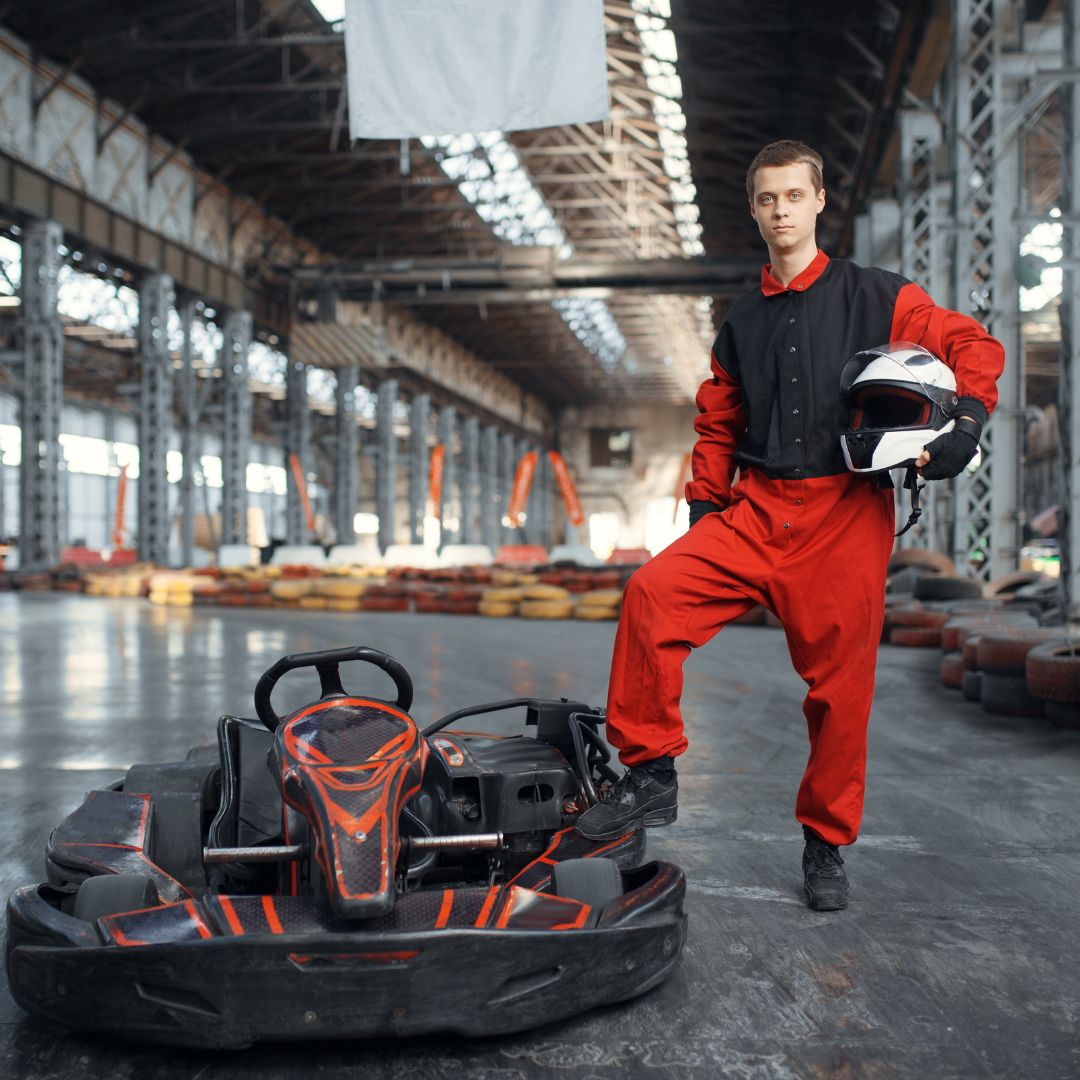
Updated: 25.4.25
Imagine the wind rushing past as your child zooms around the go-kart track, their laughter trailing behind like a flag of joy.
Go-karting isn't just a pastime—it's an adventure that builds skills, confidence, and lifelong memories.
Yet with every turn and speed boost, safety must remain a priority. The right gear ensures that your child’s go-karting experience is both thrilling and secure.
Essential Safety Gear for Kids
Key Protective Equipment
- Helmets
- Racing Suits
- Gloves
- Racing Shoes
- Rib Protectors
- 4-Point Restraint Belts
- Neck Braces
Each piece plays a critical role in ensuring safety while maximizing fun. Let’s break them down:
Helmets
A helmet is the single most important piece of safety equipment in go-karting. Choose a motorsport-specific helmet offering full-face protection and meeting standards set by organizations like the Snell Memorial Foundation or the Department of Transportation.
Racing Suits
Designed from fire-resistant materials like Nomex, racing suits protect against abrasions and heat. A snug yet flexible fit is key to freedom of movement without safety compromise.
Gloves
Gloves protect hands from blisters and burns, while enhancing grip and control. Look for fire-resistant, well-fitted models to ensure both comfort and performance.
Racing Shoes
Racing shoes enhance pedal control and protect feet during high-speed driving. Fire-resistant materials with a snug fit are essential.
Rib Protectors
These protect the torso from impacts during cornering and crashes. Adjustable designs ensure both comfort and proper coverage for growing racers.
4-Point Restraint Belts
Unlike standard seatbelts, 4-point systems restrain both the shoulders and waist, providing better protection during collisions.
Neck Braces
Neck braces stabilize the helmet and reduce the risk of serious neck injuries. A good brace is adjustable, fitting comfortably without restricting visibility or movement.
Choosing the Right Size
Safety gear must fit properly to work effectively. Here’s a quick sizing guide:
- Helmets: Measure head circumference and match to manufacturer sizing.
- Suits: Use height, chest, waist, and inseam measurements.
- Shoes: Measure foot length, accounting for racing socks.
- Gloves: Measure hand circumference for a snug fit.
- Rib Protectors & Neck Braces: Use chest and neck measurements for optimal coverage and comfort.
Maintaining and Replacing Gear
To ensure maximum protection:
- Clean gear regularly following manufacturer instructions.
- Inspect for damage after each use.
- Replace helmets after impacts or every 3–5 years, even if no damage is visible.
- Upgrade sizing as your child grows to ensure continued safety and comfort.
Building Good Habits Beyond Gear
Safe go-karting goes beyond wearing the right gear. Teach your child to:
- Respect track rules and other drivers.
- Perform pre-ride safety checks on their kart.
- Learn from mistakes to become more cautious and skilled racers.
Conclusion
Equipping your child with the right go-karting gear ensures their safety while letting them experience the full thrill of racing. From choosing high-quality helmets to properly fitting suits, every detail matters.
By prioritizing safety, you empower your young racer to enjoy karting with confidence and joy, knowing they’re fully protected on every lap around the track.
Frequently Asked Questions
What age can children start go-karting?
Most tracks allow kids to start at around 8 years old, depending on height, weight, and maturity. Always check specific track requirements.
How do I measure my child for a racing helmet?
Measure around the widest part of the head, usually an inch above the eyebrows. Compare the result to the manufacturer's sizing chart.
Is a rib protector really necessary for young racers?
Yes. Rib protectors absorb cornering forces and impact energy, reducing the risk of injury during competitive karting.
When should karting gear be replaced?
Replace helmets after any impact or every 3–5 years. Replace other gear when signs of wear, damage, or poor fit appear.
Get in Touch
Enjoyed our article on “Go Karting Gear for Your Kids”? Ready to find the perfect racing gear?
Visit RiiRoo.com for the latest kids' ride-on go-karts and safety accessories!







Share:
All About Kids Ride on Toy Motors
UK Motorbike Events for Kids